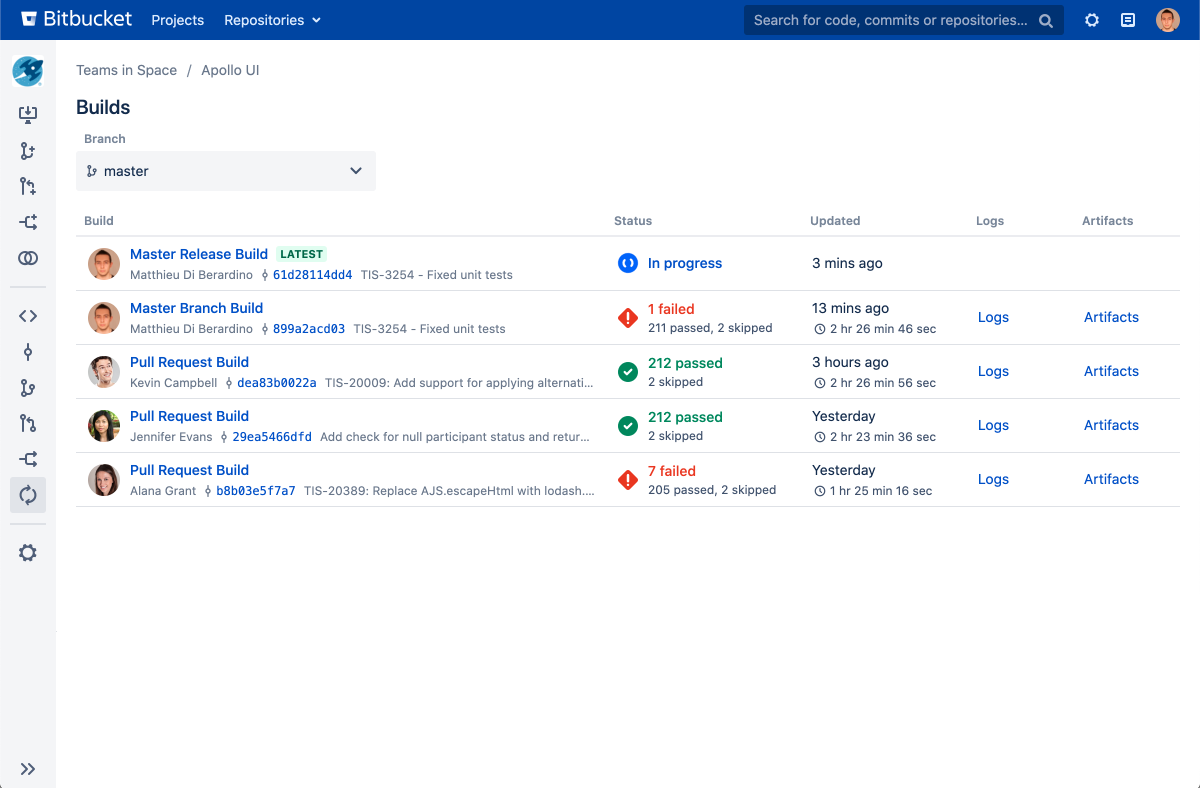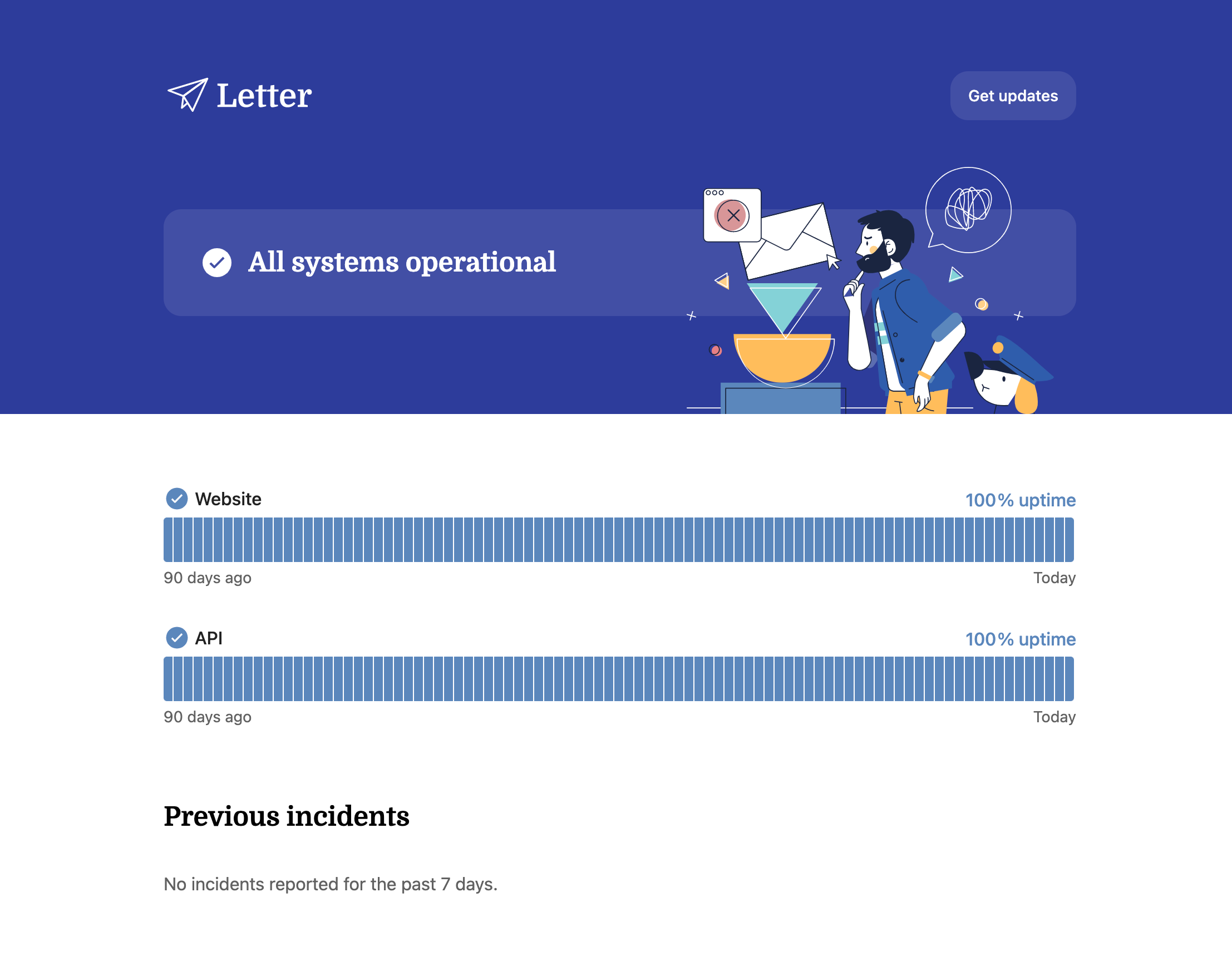In Demand DevOps Skills That Will Help Your Team Succeed

DevOps is a very specific approach to software development. It focuses on breaking down the barriers between different parts of the development process, so that the whole team can work together more effectively.
This approach has been shown to be very successful in many organizations. But in order to achieve success with DevOps, your team needs to have certain skills. In this article, the Instatus team will be walking you through some of the most important on-demand DevOps skills.
Let's get started!
Critical DevOps skills to have to ensure success:
- Coding and automation
- Logging and troubleshooting
- Monitoring
- Using various tools for version control, continuous Integration servers, and onfiguration management to name a few
- Communication
- Collaboration
- Cirtical thinking
- Problem solving
- Time management
- Flexibility
DevOps Skill Categories
As with most disciplines, DevOps skills tend to fall into one of two categories:
- Hard Skills: Specific job-related skills, knowledge, and abilities (e.g., knowledge of Jenkins)
- Soft Skills: Personal qualities that help a workplace thrive (e.g., communication)
Within the context of DevOps, hard skills (a.k.a., technical skills) usually command the most attention. Coding, logging, monitoring, automation—these are the skills that people attribute the success or failure of a DevOps project to.
Now, that isn't entirely surprising. From the outside looking in (and even from the inside looking in), it's hard skills that dominate the day-to-day experiences of DevOps leaders and engineers. When a bug is discovered, it takes technical knowledge to identify the problem and technical skills to solve it.
Obviously, hard skills are crucial for DevOps success—we'll be going over a bunch of the most important hard DevOps skills in the sections to come! However, it's difficult to overstate the importance of soft skills to the DevOps process.
Why are soft skills so critical to DevOps?
For those that aren't aware, DevOps is founded on the principles of collaboration, mutual responsibility, and continual improvement. The idea is that by creating a development environment with these principles in mind, you can break down the traditional barriers between development teams and create a better, more reliable product.
But how do you create this environment? And once you've created it, how do you maintain it? That's where soft DevOps skills come in. They may not be as flashy as coding or automation skills, but they're essential for a successful DevOps implementation.
Soft skills include things like problem-solving, critical thinking, and teamwork—skills that are necessary for any successful organization, not just ones that are using DevOps. They allow your team to thrive in the highly variable work of DevOps, and for that reason, they need to be prioritized in both the hiring process and in professional development.
Now that we know what categories DevOps skills fall into, let's take a look at some of the most important hard skills and soft skills in each category.
Hard DevOps Skills
To start off this list, we're going to be looking at a few of the hard skills that help DevOps teams succeed:
1. Coding
In the world of DevOps, coding is king. If you want your team to be successful with DevOps, they need to be able to code. This is especially true if you're using a DevOps methodology like agile, which relies heavily on automation.
Coding skills are necessary for tasks like:
- Writing scripts
- Creating automation pipelines
- Debugging applications
- Managing source code

While not everyone on your team needs to be a coding ninja, it's important that someone on the team has the necessary skills. You'll need team members who are familiar with a wide range of coding applications, as well as specific DevOps coding tools like **Git **and Bitbucket.
2. Logging
As the old saying goes, "you can't fix what you don't know about." This is especially true when it comes to fixing applications and troubleshooting errors. In order to effectively debug an application, you need to have a good understanding of what's going on inside it.
This is where logging comes in. By logging all the events that take place in your application, you create a record of what's happening that you can use to troubleshoot issues down the road. And as more and more applications move to the cloud, the importance of logging only increases.
3. Monitoring
In the world of DevOps, monitoring is king. If you want your team to be successful with DevOps, they need to be able to monitor their applications effectively. This means understanding how to use tools like Nagios, Splunk, and **Statsd **to collect and analyze data.
By monitoring your applications, you can identify issues before they cause problems and fix them quickly and effectively. You can also use monitoring data to make informed decisions about how to improve your applications.
Tip: For an easy way to monitor system statuses and relay downtime information to users before they need to ask, check out Instatus' solution!
4. Automation and Tools
Automation and tool utilization are two of the cornerstones of DevOps. By automating the tasks that are repeated over and over, you can free up your team's time to work on more important things.
In order to be successful with automation, you need to have a good understanding of both scripting languages and** automation tools**. You also need to be able to think critically (more on that later!) about how you can automate tasks in your environment.
More generally, DevOps engineers should be well acquainted with the full DevOps tool chain (i.e., the tools they have at their disposal). This tool chain includes dedicated tools for:
- Version control
- Continuous Integration servers
- Configuration management
- Deployment automation
- Containers
- Infrastructure Orchestration
- Monitoring and analytics
- Testing and Cloud Quality tools
- Network protocols
Having team members who understand the use cases and implementation protocols for tools in all of these categories will drastically improve your team's chances for success.
5. Networking
Networking skills are essential for finding success with DevOps. If you want your team to be successful, they need to be able to understand and navigate the complex world of networking.
This includes things like understanding the basics of networking protocols, being able to configure routers and switches, and knowing how to troubleshoot network issues. By having a good understanding of networking, you can ensure that your applications are running as smoothly as possible.
6. Security
In the world of DevOps, security is essential. If you want your team to be successful with DevOps, they need to be able to understand and navigate the complex world of security.
This includes things like understanding the basics of security protocols, being able to configure firewalls and intrusion detection systems, and knowing how to** troubleshoot security issues**. By having a good understanding of security, you can help keep your applications safe from attack.
Soft DevOps Skills
Now, that we've covered some crucial hard skills, let's cover some of the often overlooked soft skills that make DevOps possible:
1. Communication
In the world of DevOps, communication is key. If you want your team to be successful with DevOps, they need to be able to communicate effectively with each other.
This means having a good understanding of both written and oral communication, as well as being able to collaborate effectively. By communicating effectively, you can ensure that everyone on your team is on the same page and working towards the same goal.
2. Collaboration
Collaboration is an important DevOps skill because it allows your team to work together effectively towards a common goal. By collaborating, team members can share knowledge, ideas, and resources, which leads to a more productive and efficient team. Additionally, collaboration helps build team morale and strengthens team relationships.
3. Critical Thinking
Critical thinking is essential for success with DevOps. By being able to think critically, you can make better decisions about how to improve your applications and processes.
This means being able to identify issues and come up with solutions, as well as being able to think outside the box. By thinking critically about their work, your team can come up with innovative ways to improve their processes.
4. Problem-Solving
Problem-solving skills are another key ingredient for success with DevOps. By being able to solve problems effectively, you can minimize downtime and ensure that your applications are running smoothly. This includes things like being able to identify and diagnose problems, coming up with creative solutions, and troubleshooting issues quickly and efficiently.
5. Time Management
If you want your team to be successful with DevOps, they need to be able to manage their time effectively. This includes things like having a good understanding of how long tasks take and how much time can realistically be allocated for each task, as well as being able to work quickly and efficiently without sacrificing quality or accuracy.
By managing their time wisely and proactively, your team can ensure that deadlines are met on-time while avoiding stress and unnecessary overtime hours. Plus, it helps ensure your team is meeting customer expectations—one of the primary goals of DevOps!
5. Flexibility
Being flexible is another key attribute of a successful DevOps team. In the world of DevOps, things are always changing and evolving, so it's essential that your team be able to adapt quickly and easily.
This includes being able to change direction when needed, as well as being willing to try new things and experiment with new technologies. By being flexible, your team can stay ahead of the curve and keep up with the ever-changing landscape of DevOps.
Bottom Line
DevOps is a process that requires very specific skill sets from those who want to find success. While hard skills are essential, soft skills are just as important.
If you want your team to be successful with DevOps, make sure they have a good understanding of communication, collaboration, critical thinking, problem-solving, and time management.
Additionally, being flexible is key, so encourage your team to be open-minded about changes and experimentation. With the right skills and attitude, your team can achieve great things with DevOps!
For more information about how Instatus can help you open new lines of communications with your users through creating beautiful status pages, check out our website!
Get ready for downtime
Monitor your services
Fix incidents with your team
Share your status with customers


